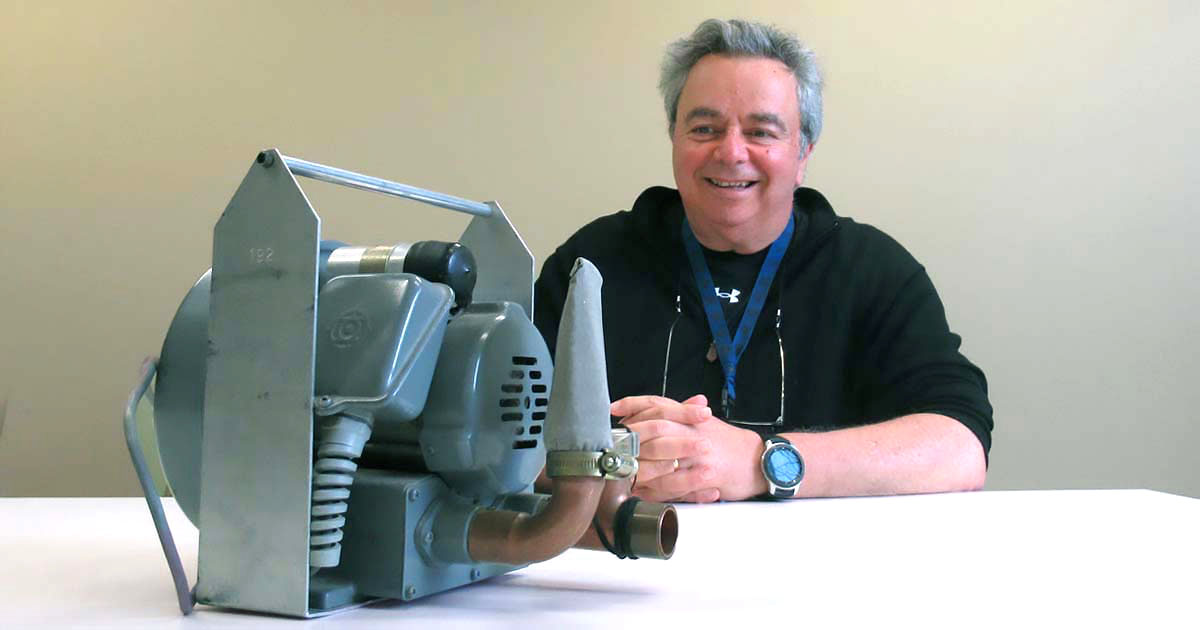
Continuous positive airway pressure (CPAP) is a therapy for sleep apnea, a disease marked by frequent disruptions in breathing while sleeping. The purpose of CPAP treatment is to maintain the airway open by delivering a continuous flow of pressured air via a mask or nasal cushion, enabling the user to breathe continuously and uninterruptedly while sleeping.
Moreover, CPAP therapy is the gold standard treatment for sleep apnea. It has been demonstrated to improve sleep quality, reduce daytime tiredness, and improve the overall quality of life in those with the disease. It may also help minimise the risk of heart attacks, strokes, and other cardiovascular issues caused by sleep apnea.
If you or a loved one has sleep apnea symptoms, it is critical to consult with a healthcare expert to establish the best course of therapy. Those prescribed CPAP therapies must adhere to the treatment plan and collaborate with their healthcare practitioner to ensure successful treatment. Furthermore, when used correctly, CPAP treatment may significantly improve sleep quality and general health in those who suffer from sleep apnea.
The Advantages Of CPAP
Continuous positive airway pressure (CPAP) therapy can provide several benefits for individuals with sleep apnea, including:
1. Improved Sleep Quality
CPAP treatment keeps the airway open during sleep, enabling the individual to breathe continuously and without interruption. As a result of not waking up many times throughout the night owing to disordered breathing, sleep quality may improve.
2. Reduced Daytime Sleepiness
Sleep apnea may cause excessive daytime drowsiness because the individual does not obtain enough restorative sleep owing to continuous breathing disruptions. By enhancing sleep quality, CPAP treatment may help alleviate the sleepiness.
3. Enhanced Overall Quality of Life
Sleep apnea may cause excessive daytime drowsiness because the individual does not obtain enough restorative sleep owing to continuous breathing disruptions. By enhancing sleep quality, CPAP treatment may help alleviate the sleepiness.
4. Reduced Risk of Cardiovascular Complications
Sleep apnea is associated with an increased risk of heart attack, stroke, and other cardiovascular problems. CPAP treatment may help minimise this risk by enhancing sleep quality and eliminating breathing disruptions.
5. Improved Blood Pressure
High blood pressure has been associated with sleep apnea, and CPAP treatment has been found to reduce blood pressure in those with the disease.
6. Reduced Risk of Type 2 Diabetes
Sleep apnea has been linked to an increased risk of type 2 diabetes, and CPAP treatment has been found to improve blood sugar management in those with the disease.
7. Depression
Sleep apnea has been associated with an increased incidence of depression, and CPAP treatment has been demonstrated to enhance mood in those with it.
The Side Effects Of CPAP
Dry Mouth or Nasal Congestion
Passing compressed air via the mask or nasal cushion might produce mouth dryness or congestion. These adverse effects are generally manageable with a humidifier or saline nose spray.
Skin Irritation
The mask or nasal cushion may cause skin irritation or pressure sores. Using a moisturising lotion or changing covers may help to relieve these adverse effects.
Bloating or Discomfort
Some persons may suffer bloating or pain while wearing the mask or nasal cushion. This is often remedied by adjusting the mask or altering the machine’s pressure setting.
Difficulty Falling Asleep
Some patients may struggle to sleep when using CPAP treatment because the mask and hose are unpleasant or unfamiliar. It may take some time to become used to the therapy, but most individuals find that the advantages of better sleep and quality of life outweigh the inconvenience.
Some CPAP Advice
1. Choose a suitable mask.
Full-face masks, nasal masks, and nasal pillows are among the several varieties of shows available. It is critical to pick a mask that fits well and is pleasant to wear. If you’re having problems locating the correct mask, get advice from a healthcare practitioner or a sleep expert.
2. Use a humidifier.
The passage of compressed air via the mask or nasal pillow might cause the mouth and nasal passages to dry up. A humidifier may assist in relieving dryness and make the therapy more pleasant.
3. Clean the mask and machine regularly.
It is essential to clean the mask and equipment regularly to ensure optimal performance and limit the risk of infection. Clean the mask and device according to the manufacturer’s recommendations.
4. Stay consistent.
The mask must be worn every night while sleeping to get the full advantages of CPAP treatment. It may take some time to become used to the therapy, but most individuals find that the benefits of better sleep and quality of life outweigh the inconvenience.
5. Talk to your healthcare provider.
If you are experiencing problems with your CPAP treatment, please get in touch with your healthcare practitioner. They can assist you in troubleshooting any issues and making any necessary changes to your treatment plan.
Conclusion
Continuous positive airway pressure (CPAP) therapy is a successful treatment for sleep apnea, a disease marked by frequent disruptions in breathing while sleeping. The purpose of CPAP treatment is to maintain the airway open by delivering a continuous flow of pressured air via a mask or nasal cushion, enabling the user to breathe continuously and uninterruptedly while sleeping.
